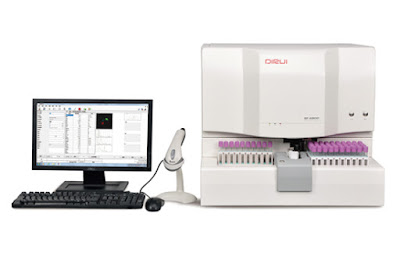Among its many clinical uses, fluorescence-based flow cytometry aids laboratories in the diagnosis of blood cancers and other disorders. The Division of Hematopathology within the Department of Laboratory Medicine and Pathology at Mayo Clinic in Rochester, Minnesota, performs both basic and specialized hematology testing via six specialty labs. Its Cell Kinetics Laboratory, in particular, uses flow cytometry as a primary technology to diagnose leukemias and lymphomas from blood, bone marrow, fluid, and tissue specimens. Clinical diagnosis of most hematological diseases, especially malignant forms, requires clinicopathologic correlation, and flow cytometry can play an important role in pathological diagnosis. The processes employed by flow cytometry help distinguish abnormal from normal conditions and provide an expedient method of establishing clonality and aberrant antigen expression on abnormal populations.
The Cell Kinetics Lab employs 28 staff and utilizes 9 flow cytometers to manage its volume demand. The lab analyzes high volumes of mostly malignant samples sent from all over the world in addition to those from patients at Mayo Clinic. All specimens must be preprocessed, and the lab purchases monoclonal antibodies that attach to one type of cell antigen (ie, cluster of differentiation [CD]), multiples of which can be found on each cell surface. These acquired antibodies are pre-conjugated with one or more fluorescent markers, and there are many color options for each CD marker, adding flexibility to panel makeup. Monoclonal antibodies can be expensive but can have a substantial shelf life of 6 to 18 months. The Cell Kinetics Lab stocks anywhere from 70 to 80 different antibodies in refrigeration for use in flow cytometry processes.
Read more: Impact of Flow Cytometry on Blood Disorders
Source: MedLabMag
Watch Video: Flow Cytometry Animation


